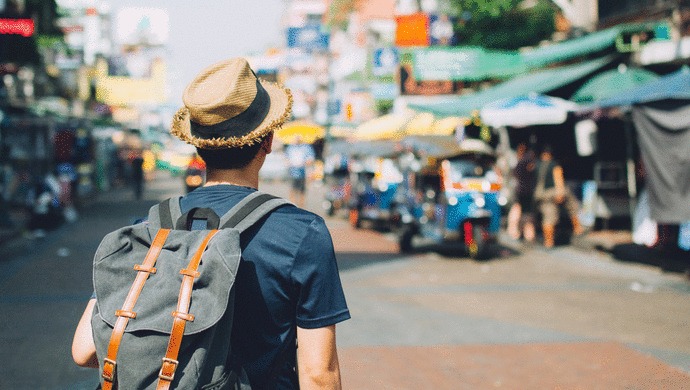Changing the mindsets of Thai innovators and creating commercial value for home-grown R&D efforts

The early 2000s was the era of the dot-com boom and bust. Entrepreneurship was becoming more and more of a choice for young people as a career path.
As fresh MBA graduates from Sasin School of Management and, a part of a participating team of the Asia MOOT CORP Business Plan Competition, Chanvit Vitayasamrit and I realised that Thailand needed to have a local startup competition to create better awareness on what it takes to become a successful entrepreneur.
With the green light from Sasin and support from The Stock Exchange of Thailand, The Nation Multimedia Group and Kiatnakin, the Bangkok Business Challenge @ Sasin was first held in early 2002, with the prestigious H.M. The King’s Award for the overall winner.
Its objective was to encourage scalable new venture creation by instilling entrepreneurial spirit into graduates’ minds and planting the seeds of entrepreneurship and innovation within institutions of higher learning. Our main focus was on deep tech startups as we wanted to create commercial value for Research and Development (R&D) efforts, especially those originating from university research centres.
Also Read: ‘The Age of Cryptocurrency’ is a must read for anyone who wants to go from zero to one in blockchain
As the competition grew to include regional participants, the Market for Alternative Investment (MAI) became co-hosts with Sasin from 2007 onwards. The MAI Bangkok Business Challenge @ Sasin then opened to global participants and at its peak, attracted over 120 teams from leading Universities around the World.
Soon after, the sustainability component was introduced in 2010 to get young entrepreneurs to integrate sustainability into their growth strategy from the onset of their startups. H.R.H. Princess Maha Chakri Sirindhorn granted a trophy for the team which shows best their sustainability concerns in 2015.
With so many participating teams from around the globe pitching a variety of new ideas and innovations from their own university research centres, the competition got noticed by SCG, Thailand’s leading business conglomerate with footholds in the ASEAN region.
SCG recognised the Bangkok Business Challenge as a source for its open innovation strategy and became title sponsor and co-host of the competition since 2018 and the competition has now become SCG Bangkok Business Challenge @ Sasin.
Many teams have used the competition as a stepping stone into the real world of startups.
For example, Indirect Imaging, a team from Rice University won the competition in 2010. Their technology was a patent-protected microscope technology working prototype, resulting in a high definition image applicable for a variety of work. After the competition, the team changed its name to Rebellion Photonics and was incorporated soon after.
They were incubated by Houston Technology Center and by 2014, raised US$10.4 million private equity funding and over US$5.5 million in government grants to accelerate market expansion of its Gas Cloud Imaging cameras that see and quantify gas leaks before they cause explosions or unnecessary emissions on oil rigs, refineries, pipelines, and chemical plants.
Rebellion Photonics Inc. was also named No.1 ‘WSJ Startup of the Year’ by Wall Street Journal and its CEO/Co-founder, Allison Sawyer, was named Forbes and Inc. Magazine ’30 under 30’.
Siam Organic is another team that used the competition as a springboard to success. It is an export marketing company developing the world’s most nutritious and healthy certified organic rice under the brand Jasberry.
Also Read: Korea’s TOP100 winner eyes a fraud free future for the e-commerce industry
With the support of a fully integrated supply chain, Siam Organic would access consumers worldwide and develop one of the most premium branded organic rice strains coming out of Thailand. Siam Organic won the competition in 2011 and went on to win many other competitions, including first place at the “Spark the Fire” pitching competition of the Global Entrepreneurship Summit (GES) at Stanford University in 2016. Jasberry is now sold worldwide.
Besides successful team after-stories, the competition also prides itself on creating individual entrepreneurs who have gone through the process and have found success creating their own startups.
Pradeep Akkunoor was one of the original team members of Siam Organic. Ever since the competition, he has branched out and created his own startup, Laiki. Laiki produces healthy rice cracker snacks using locally sourced ingredients from Thailand and sold all over the world, including Whole Foods Market in the US.
SCG Bangkok Business Challenge @ Sasin will celebrate its 20th anniversary in less than three years and I hope to see many more successful startups using it as a starting point for their startups.
Additionally, we aspire to be a key influencer in Thailand’s deep tech startup ecosystem, changing mindsets of Thai innovators to better understand the market and think global, creating commercial value for sustainable home-grown R&D efforts.
—
Image by twinsterphoto
e27 publishes relevant guest contributions from the community. Share your honest opinions and expert knowledge by submitting your content here.
The post My journey in establishing and growing Bangkok Business Challenge @ Sasin appeared first on e27.